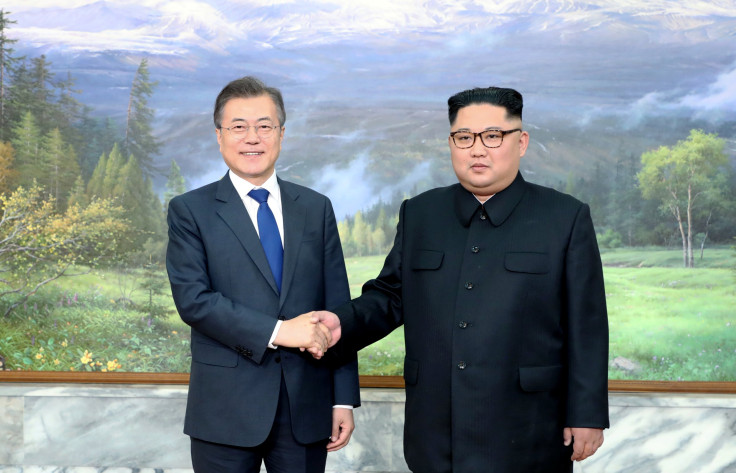South Korea Suspends Annual Defense Drill Amid Improved Relations With North Korea

South Korea, in a joint press release from Seoul's defense ministry and the ministry of public administration and security, announced its decision to cancel the Ulchi exercise, an annual defense drill, Tuesday amid improved relations with the Democratic People's Republic of Korea.
The drill, launched in 1969, is performed every year to examine South Korea’s crisis management capabilities and warfare preparedness.
The government has refrained from military drills and other such exercises that might provoke North Korea, which is in talks with the U.S. over denuclearization.
"The government has decided to temporarily suspend the Ulchi exercise slated for later this year, in accordance with the changing security circumstances and earlier decisions to halt joint military drills between South Korea and the U.S.,” Kim Boo-kyum, minister of the interior, announced, local daily Korea Times reported.
In June, a week after Donald Trump promised to stop any provocative war games in the Korean Peninsula, South Korea and the U.S. decided to suspend Ulchi Freedom Guardian defensive exercise, a joint military drill, slated for August.
“The South and the U.S. plan to continue consultations over additional measures,” they had jointly announced on June 19.
Kim Boo-kyum said South Korea is planning to introduce a new drill known as “Ulchi Taeguk" exercise, a combination of Ulchi with the South Korean military's Taeguk exercise from the beginning of next year.
"The Ulchi Taeguk exercise will be intended to guard against terrorism and large-scale disasters, as well as armed attacks from outside," he said.
Setting aside decades of animosity, North Korean leader Kim Jong Un and South Korean President Moon Jae-in met at a historic summit on April 27 where they discussed about formally ending the Korean War and ending North Korea’s ability to launch nuclear missiles. The two leaders pledged to end nuclear weapons on the peninsula.
"I feel that we are part of one family and both countries will have a new policy of cooperation. After years of disputes, we are here today to say that nothing will make us different again," the North Korean leader said after the summit.
"Kim Jong-un and I declare that there will be no more war on the Korean Peninsula and a new age of peace has begun," Moon announced, Al Jazeera reported.
During the summit, there were few historic scenes like Kim walking into South Korean territory, Kim and Moon planting a tree together and taking photos with their respective delegations.
“The April 27 summit was full of symbolism, imagery, and rhetoric, that should not be brushed aside to look for ‘real’ progress. Symbolism is important in itself,” Donald Manzullo, president of the Korea Economic Institute, said, Vox reported.
“Many around the world were moved by the powerful imagery of the two leaders coming together to advance harmony and peace on the Korean Peninsula,” Secretary General of the UN António Guterres said, adding he “salutes the courage and leadership that resulted in the important commitments and agreed actions outlined in the Panmunjom Declaration for Peace, Prosperity and Unification of the Korean Peninsula.”
© Copyright IBTimes 2025. All rights reserved.



















